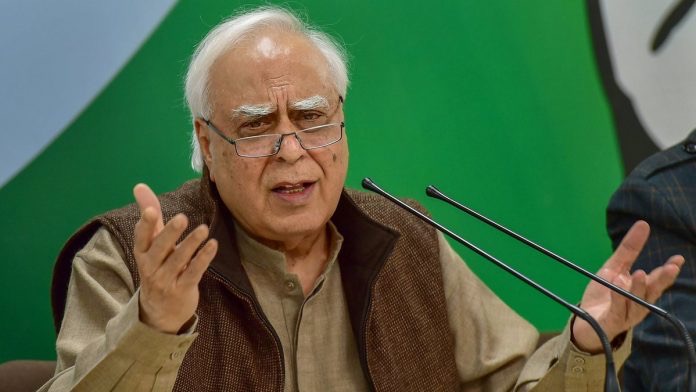SC’s in-house probe report in Justice Varma case has no constitutional relevance: Sibal. New Delhi, Rajya Sabha MP Kapil Sibal on Saturday said the Supreme Court’s in-house inquiry report in Allahabad High Court Judge Yashwant Varma’s case has “no constitutional relevance” as an investigation can only take place under the Judges Inquiry Act.
Addressing a press conference, Sibal also accused the government of protecting Justice Shekhar Yadav and questioned the Rajya Sabha Secretariat over its attempt to reach out to him for the reported verification of his signature on the notice to move an impeachment motion against the judge for making “communal remarks” last year at a VHP event.
On the Justice Varma case, Sibal said, “Under Article 124 of the Constitution, if 50 members of the Rajya Sabha or 100 members of the Lok Sabha submit a notice for moving a motion , then a judges inquiry committee is set up under the Judges Inquiry Act.”
But only Parliament has the power to constitute such a committee, said Sibal, who is also a senior advocate. Parliament can make a law, under that law an investigation will be done, and after the probe, a decision will be given on misbehaviour or incapacity of a judge, he said. At a joint sitting of both Houses, the impeachment motion has to be passed by a two-thirds majority for it to go through.
So, the investigation has to be under the judges inquiry committee set up under the Judges Inquiry Act, he said. The Constitution does not recognise any in-house procedure, Sibal said. “On what basis are you saying that Justice Varma is guilty? Ministers are making remarks to this effect,” the Independent MP said.
Sibal also pointed out that Parliament states that the motion for impeachment will be brought by members and not the government.”How does a minister make the statement that ‘I will move the motion’? The government cannot rely on an in-house procedure which has nothing to do with Article 124 of the Constitution,” he contended. No government or member of Parliament can look at that report and come to any conclusion, Sibal asserted.
He further said that the in-house procedure was set up in 1999 by the Supreme Court and there have been many impeachment motions against judges, but the in-house procedure report was never sent to the government. “So why did this in-house report become public in this case when the previous ones weren’t,” he asked. A fire incident at Justice Varma’s residence in the national capital in March, when he was a judge at the Delhi High Court, had led to the discovery of several burnt sacks of banknotes in the outhouse.
Though the judge claimed ignorance about the cash, the Supreme Court-appointed committee indicted him after speaking to a number of witnesses and recording his statement. Then-CJI Sanjiv Khanna is believed to have prodded him to resign, but Justice Varma dug in his heels. The apex court has since repatriated him to his parent court, the Allahabad High Court, where he has not been assigned any judicial work.
Sibal’s remarks come days after Parliamentary Affairs Minister Kiren Rijiju said prominent opposition parties have given their in-principle approval to support the motion to remove Varma and the process of collecting signatures could begin soon. Rijiju said the government is yet to decide whether the motion would be brought in the Lok Sabha or the Rajya Sabha.



